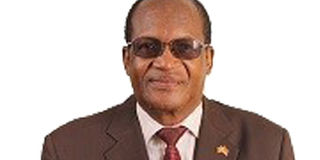Should we brace ourselves for more strikes or it’s done?

What you need to know:
No success. For Makerere University, there have over the years been back and forth negotiations and consultations at various levels of government, academic and support staff with the objective of addressing the contentious issues that cause staff industrial action and student strikes, without much success.
As the students strike burns out, should we brace ourselves for another round of chaos when the current cycle of unrest later feeds into staff industrial action?
It would be reasonable to assume that returning to complete normalcy may depend on the nature of the practical and administrative interventions used to manage the post-strike period.
Whatever they do, management should be cognizant of the reality that staff remuneration issues are a ‘plain attractor’ for chaos in the same way a rise in tuition and other fees is not a ‘strange attractor’!
In recent articles, Uganda Christian University (UCU) Vice Chancellor, the Rev Can Dr John Ssenyonyi, maintained that payment of tuition fees is key to creating a university’s financial capacity to meet its obligations and to sustain staff morale at the high levels necessary for the quality teaching at UCU.
For Makerere University, progress in forging a way forward is being made. Senior academic Dr David Onen, teaching in the East African School of Higher Education and Development, of the College of Education and External Studies, was the main discussant of Dr Ssenyonyi’s keynote exposition on Higher Education at the ‘Professor Ssenteza Kajubi Memorial Lecture’ at Central Teaching Facility II of Makerere University on Thursday.
Sharing knowledge and expertise is one aspect of internationalisation and is in tandem with the principles of academic conviviality.
Practitioners and experts in higher education, of Dr Ssenyonyi’s calibre, do more than list facts. They convey important messages and information, empirically-deduced or inferred from robust research, to policy makers.
They bring out what is more important and point at what’s peripheral because they know what explains the way things work; and know what predicts the way a multiversity, like Makerere, behaves if certain actions are taken or omitted.
Experts pick out the invariants that explain why systems are reeling in chaos or certain public policies failed or are failing.
They predict the future, enabling the occurrence of proper planning for progress and handling possible contingencies. Although slight errors in decision-making or measuring the state of such dynamic systems can with ulterior motives be amplified or exaggerated, prediction is not inconsequential. Makerere politics being a microcosm of Uganda’s political obtrusiveness, picking out the invariants is not easy. Experts are what author of The Honest Broker: making sense of Science in Policy and Politics, Roger Pielke Jr, described as ‘Science Arbiters’.
These serve as a resource for decision-makers, standing ready to answer factual questions that the decision-makers deem relevant. Their informative expositions are invariably worth listening to.
For Makerere University, there have over the years been back and forth negotiations and consultations at various levels of government, academic and support staff with the objective of addressing the contentious issues that cause staff industrial action and student strikes, without much success.
Management and staff have an obligation therefore to negotiate in good faith in order to obtain mutually beneficial agreements aimed at ending the entropy.
Academic Staff and obsequious Students sometimes hope the chaos resulting from industrial action will prompt management to prioritise their demands. But authoritarian strategies aiming at pushing staff and students into pusillanimity may also not work.
Mr Baligidde teaches Diplomacy, Negotiations and Politics of Public Policy.


